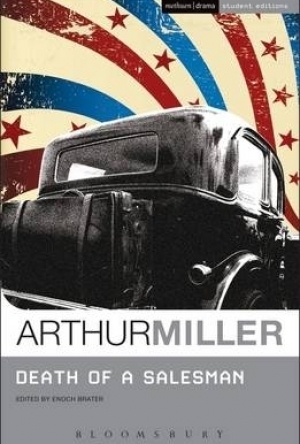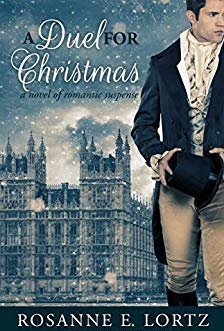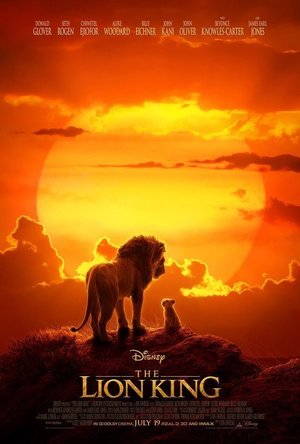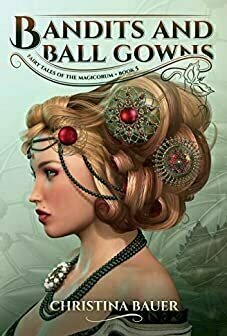
Bandits And Ball Gowns (Fairy Tales of the Magicorum #5)
Book
One Prince Finds True Love ... And Risks It All Elle Cynder has fallen hard for Alec, the...
Young Adult Fantasy
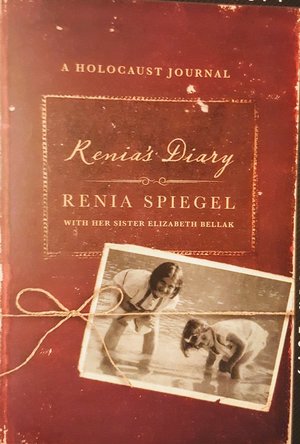
Renia's Diary: A Holocaust Journal
Renia Spiegel and Elizabeth Bellak
Book
Renia's Diary: A Holocaust Journal by Renia Spiegel, with her sister Elizabeth Bellak This is the...
Jewish Holocaust Diary Poland Polish Nazi
Becs (244 KP) rated Death of a Salesman in Books
Oct 2, 2019
Understanding the pain that Willy was going through. Understanding the issues Biff has with stealing from jobs. Understanding Happy’s need to sleep around. Bringing to light the issue of a salesman’s career and how the job market was going downhill. Death of a Salesman is worth a read or a couple of rereads!
Genre: Literary Classic, plays
Audience: Young Adult and Adults
Interests: Plays, salesmen, American Dreams, family-ties
Quality: The quality of Death of a Salesman is not one you can take lightly. There are moments throughout the play that a younger version of myself would never be able to understand until I experienced the real world for myself. Now, I understand what it’s like losing a job you hoped to have for the rest of your life. Becoming depressed to the point that you just don’t know what to do anymore regarding your family other than hoping that they can make ends meet when you’re gone.
Insights: Death of a Salesman shows that dreams are not always sunny beaches and sprinkles. But that it contains a dark side that will rip your happiness and everything you’ve lived for into a million tiny pieces that will never be able to be fixed again.
Favorite Quotes: “The jungle is dark but full of diamonds, Willy.”
“I realized what a ridiculous lie my whole life has been.”
“I stopped in the middle of that building and I saw — the sky. I saw the things that I love in this world. The work and the food and time to sit and smoke. And I looked at the pen and said to myself, what the hell am I grabbing this for? Why am I trying to become what I don’t want to be? What am I doing in an office, making a contemptuous, begging fool of myself, when all I want is out there, waiting for me the minute I say I know who I am! Why can’t I say that, Willy?”
Aesthetics: I love how Arthur Miller shows the reader what it’s like in a world as a struggling family. Nonetheless, a struggling middle-aged man in the fifties who is battling depression and the loss of his career. It really shows the reader that anything can happen, that you could possibly lose your career. That you could possibly lose your home or even your loved ones. Anything can happen when life decides to wipe your slate and leave you with nothing in return. So the time we have now, we must cherish it. For we never know how much time we truly have.
“The only thing you’ve got in this world is what you can sell.”
MaryAnn (14 KP) rated A Duel for Christmas (Pevensey Mysteries, #3) in Books
Mar 5, 2019
The Duke of Tilbury considers himself as adept at managing matters as he is at swordplay, but his beautiful new acquaintance Lady Worlington has other ideas about how to manage her complicated life. Intrigued by their stolen kiss, Geoffrey pursues Lady Worlington’s affections, only to be foiled by the lady’s own doubts, by rivals for her hand, and by a sudden death, that affects both their families. When Jacob Pevensey, the investigator from Bow Street enters the scene, the duke becomes a prime suspect in the murder case. Truths are unearthed that Geoffrey would rather keep hidden, and the twelve days of Christmas race toward a perilous end.
My Thoughts: A story full of mystery, suspense, romance, and some charming characters. I truly enjoyed this story, based on the twelve days of Christmas, in true Victorian style. The characters were well developed and easy to relate to. Some you liked and some you dislike. It was good to see the strengthening of Maude's character, that she was finally able to stand up for herself and to go on with life without being bullied or blackmailed. This story takes many twists and turns and has many surprises for the reader. This is a book for those who like historical fiction. A wonderful read just in time for the Christmas season!
Lenard (726 KP) rated The Lion King (2019) in Movies
Jul 28, 2019
The longer version: It does bring up an interesting point. Mufasa teaches Simba about the Circle of Life where the death of the lions replenishes the savanna with nutrients. The movie shows a circle of life by beginning with the birth of a lion prince cub and ends with the birth of the cub prince of the original cub. In the middle of the movie, the pride of African prey, meerkat, warthog, galago (one of my favorite animals), aardvark, etc., talk about how they only see food and predator. This illustrates that the animals in the middle of a food web can only see the linear relations that affect their life. Only the apex predator have any perspective of the complete circle, the prey/secondary predators have a more limited view of life.
Secondly, the soundtrack is so iconic that when "Can You Feel The Love Tonight" started, I had completely forgotten that oh yeah this is the song that actually won the Academy Award. However, I never once believed this part of the film. It seemed that the filmmakers had to put it here, but they had not earned the major plot point. I did not believe that Simba and Nala were starting to fall into love with each other. Maybe I had started to drift off into a timeline of the songs that had won Best Original Song, but still this is a major moment in the film and it needs to cohere. Unfortunately, though the film is beautiful and has great cinematography from Caleb Deschanel, it needed a much better story to work in "live action."
The J. R. R. Tolkien Companion and Guide
J.R.R. Tolkien, Wayne G. Hammond and Christina Scull
Book
Stunning two-volume slipcased set containing the most comprehensive in-depth companion to Tolkien's...
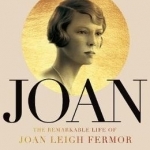
Joan: The Remarkable Life of Joan Leigh Fermor
Book
Volumes have been written by and about Patrick Leigh Fermor, but his wife Joan is almost entirely...
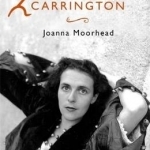
The Surreal Life of Leonora Carrington
Book
In 2006 journalist Joanna Moorhead discovered that her father's cousin, Prim, who had disappeared...
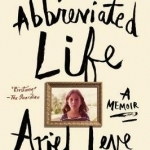
An Abbreviated Life: A Memoir
Book
A beautiful, startling, and candid memoir about growing up without boundaries, in which Ariel Leve...
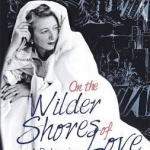
On the Wilder Shores of Love: A Bohemian Life
Lesley Blanch and Georgia de Chamberet
Book
Most famous for The Wilder Shores of Love, her book about four women travellers, Lesley Blanch was a...
